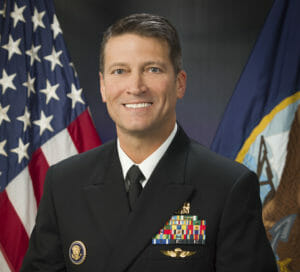Experts and Advocates Urge Biden to Stop LNG Exports
The export boom has destroyed Gulf ecosystems, livelihoods, and communities. Permitting more would be disastrous for the region, country, and climate. John Allaire watches flames flare from a liquefied natural gas export facility next to his oceanside property in Cameron, La., on Friday, April 1, 2022. (AP Photo/Martha Irvine)
John Allaire watches flames flare from a liquefied natural gas export facility next to his oceanside property in Cameron, La., on Friday, April 1, 2022. (AP Photo/Martha Irvine)
Gulf Coast community advocates on Tuesday called for U.S. President Joe Biden to permanently ban the export of liquefied natural gas.
In January, Biden’s Department of Energy (DOE) announced a pause on approvals for new LNG exports to non-Free Trade Agreement countries so it could develop a new metric for whether these exports are in the public interest. The new metric should consider factors such as energy prices and the climate emergency, the administration said. The move was widely welcomed by climate and environmental justice groups, but it earned instant backlash from the fossil fuel industry and their allies in Congress.
In a Tuesday press briefing, frontline Louisiana fisherman and founder of the group Fishermen Involved in Sustaining our Heritage (F.I.S.H.) Travis Dardar, Louisiana Bucket Brigade director Anne Rolfes, and energy policy expert Tyson Slocum spoke about the harm that the LNG export boom has already done to Gulf ecosystems, livelihoods, and communities and why permitting more would be disastrous for the region, the country, and the climate.
“We’ve seen the destruction that just one of these plants has, so to be in the public interest to build all these other ones would be… a ridiculous notion,” Dardar told reporters. “I mean, this is literally destroying people’s lives.”
‘We’re Living This Nightmare’
Dardar described how life changed in Cameron Parish, Louisiana, after Venture Global built its first Calcasieu Pass terminal, which began operations in early 2022.
“We went from sitting on the porch at night, and you could hear the beach, to the roar of the plant, to the point where they would shoot, literally vibrate pictures off the walls and the flares would make nighttime seem like daytime,” he said.
People began to get sick from cancer and other mysterious illnesses. Dardar was threatened with truancy charges because his children had missed so many school days due to ailments that doctors have failed to diagnose.
“I mean, this is literally destroying people’s lives.”
Dardar also detailed impacts to the fishing industry. LNG barges create large waves that have sunk and destroyed fishing boats, dredging has polluted the water with sediment, and the catches of fish and shrimp have “decreased dramatically.”
“Cameron used to be No. 1 for shrimping, and now they call it No. 1 LNG capital of the world. You know, that leaves a bitter taste in my mouth,” Dardar said.
Dardar and other fishers in the region are now mobilizing to stop Venture Global from building a second planned terminal, Calcasieu Pass 2 (CP2).
He noted that politicians and others who support Venture Global’s plants either live in other parts of the state or moved out of Cameron Parish.
“They know better than to live there, but yet they’re willing to sacrifice the people in the industry for, you know, money, greed,” Dardar said.
But the people left behind are not seeing any benefits.
“We’re living this nightmare,” he said.
Fishing Communities v. Industry Lobbyists
Rolfes of Louisiana Bucket Brigade said that one reason Venture Global had been able to get away with operating in such a destructive way was because the state of Louisiana has long been “controlled by the petrochemical industry.”
This makes it all the more important, Rolfes said, that the DOE rule the LNG export boom is not in the public interest.
“This is why we need intervention at the federal level,” she said.
“At the highest levels of Congress, they are acting on behalf of Venture Global,” Rolfes said.
She also criticized current and former Louisiana politicians who put the oil and gas industry over the well-being of their own constituents. She highlighted a letter sent by House Majority Leader Rep. Steve Scalise (R-La.) and Rep. Clay Higgins (R-La.) to Federal Energy Regulatory Commission Chair Willie Phillips on April 16, in which they urged FERC to approve CP2.
In the letter, they recycled debunked industry talking points, such as the argument that gas is a “clean-burning” fuel and that exports will help U.S. allies “transition away from Russian gas.”
In fact, new science has shown that methane leaks make fossil gas at least as much of a climate pollutant as coal and Europe is moving quickly away from gas all together and toward renewable energy sources.
“At the highest levels of Congress, they are acting on behalf of Venture Global,” Rolfes said.
She also pointed to the example of former Sen. Mary Landrieu (D-La.), who now works at law firm Van Ness Feldman and posted on Facebook Monday that the firm was “proud” to represent Venture Global, which she called an “outstanding company”
“This is who is in the debate regarding the public interest,” Rolfes said. “On our side, it’s fishermen, fishing families, and people who are worried about the prices of energy. And on their side, it’s a damn Venture Global lobbyist.”
Rolfes added, “It’s awful to watch these people who are from Louisiana act as lobbyists, even when they’re congresspeople, act as lobbyists for a company that is actually destroying our culture.”
Failing the Test
Slocum, who directs Public Citizen’s energy program and works as a professor at University of Maryland Honors College, said that restoring LNG exports wouldn’t just work against the interests of frontline communities in the Gulf.
“The record volumes of methane gas that we’re currently exporting have extraordinary impacts on domestic energy markets that have exposed working families and businesses across the United States to higher prices,” Slocum said.
He also gave the history of why the DOE must consider the public interest before it approves shipping gas abroad: It dates to the Natural Gas Act of 1938, which placed this condition on future exports.
“You cannot say that tripling or quadrupling the level of exports from today’s record highs is not going to result in significant financial harm.”
“The Biden administration’s decision to pause pending reviews was required by the law,” Slocum said, “because the standards developed to assess the public interest that were conducted during the Trump administration were irrelevant and based upon extraordinarily poor data and methodologies.”
As to what the DOE will eventually determine, Slocum said it has historically relied on an overall cost-benefit analysis. In this case, it would consider jobs created and money made from export operations on one hand and higher prices and impacts on local communities and industries on the other. Slocum said that the planned LNG expansion could not be considered in the public interest “by any metric.”
“You cannot say that tripling or quadrupling the level of exports from today’s record highs is not going to result in significant financial harm,” he said.
At the same time, the Biden administration has also mandated that regulatory agencies need to complete a “distributional analysis,” meaning they most consider how policies will impact people depending on their income levels. In the case of LNG exports, any increase in prices will necessarily hit low-income families and individuals harder.
“It is inconceivable that it is in the public interest to force the poorest American families to bear higher and more volatile energy burdens, to prioritize bigger profits for commodity traders, LNG exporters, and foreign markets,” Slocum said.
He concluded, “Any honest assessment would have to conclude that additional LNG exports fail the public interest test.”
Your support matters…Independent journalism is under threat and overshadowed by heavily funded mainstream media.
You can help level the playing field. Become a member.
Your tax-deductible contribution keeps us digging beneath the headlines to give you thought-provoking, investigative reporting and analysis that unearths what's really happening- without compromise.
Give today to support our courageous, independent journalists.






You need to be a supporter to comment.
There are currently no responses to this article.
Be the first to respond.